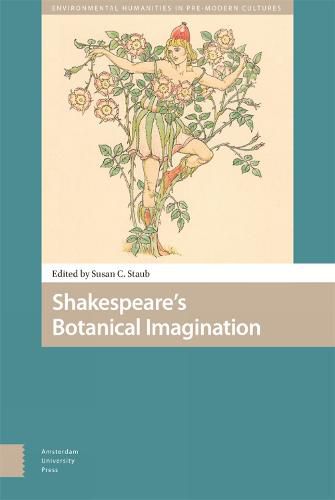Readings Newsletter
Become a Readings Member to make your shopping experience even easier.
Sign in or sign up for free!
You’re not far away from qualifying for FREE standard shipping within Australia
You’ve qualified for FREE standard shipping within Australia
The cart is loading…






Writing on the cusp of modern botany and during the heyday of English herbals and garden manuals, Shakespeare references at least 180 plants in his works and makes countless allusions to horticultural and botanical practices. Shakespeare's Botanical Imagination moves plants to the foreground of analysis and brings together some of the rich and innovative ways that scholars are expanding the discussion of plants and botany in Shakespeare's writings. The essays gathered here all emphasize the interdependence and entanglement of plants with humans and human life, whether culturally, socially, or materially, and vividly illustrate the fundamental role plants play in human identity. As they attend to the affinities and shared materiality between plants and humans in Shakespeare's works, these essays complicate the comfortable Aristotelian hierarchy of human-animal-plant. And as they do, they often challenge the privileged position of humans in relation to non-human life.
$9.00 standard shipping within Australia
FREE standard shipping within Australia for orders over $100.00
Express & International shipping calculated at checkout
Writing on the cusp of modern botany and during the heyday of English herbals and garden manuals, Shakespeare references at least 180 plants in his works and makes countless allusions to horticultural and botanical practices. Shakespeare's Botanical Imagination moves plants to the foreground of analysis and brings together some of the rich and innovative ways that scholars are expanding the discussion of plants and botany in Shakespeare's writings. The essays gathered here all emphasize the interdependence and entanglement of plants with humans and human life, whether culturally, socially, or materially, and vividly illustrate the fundamental role plants play in human identity. As they attend to the affinities and shared materiality between plants and humans in Shakespeare's works, these essays complicate the comfortable Aristotelian hierarchy of human-animal-plant. And as they do, they often challenge the privileged position of humans in relation to non-human life.